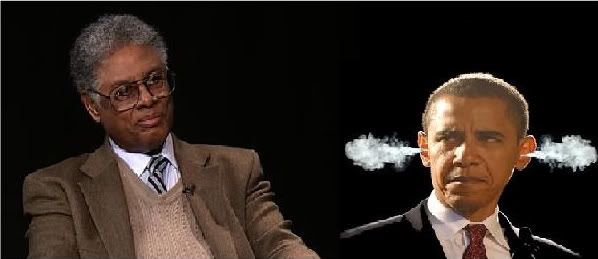
When Donald Rumsfeld was Secretary of Defense, he coined some phrases about knowledge that apply far beyond military matters.
Secretary Rumsfeld pointed out that there are some things that we know that we know. He called those "known knowns." We may, for example, know how many aircraft carriers some other country has. We may also know that they have troops and tanks, without knowing how many. In Rumsfeld's phrase, that would be an "unknown known" — a gap in our knowledge that we at least know exists.
Finally, there are things we don't even know exist, much less anything about them. These are "unknown unknowns" — and they are the most dangerous. We had no clue, for example, when dawn broke on September 11, 2001, that somebody was going to fly two commercial airliners into the World Trade Center that day.
There are similar kinds of gaps in our knowledge in the economy. Unfortunately, our own government creates uncertainties that can paralyze the economy, especially when these uncertainties take the form of "unknown unknowns."
The short-run quick fixes that seem so attractive to so many politicians, and to many in the media, create many unknowns that make investors reluctant to invest and employers reluctant to employ. Politicians may only look as far ahead as the next election, but investors have to look ahead for as many years as it will take for their investments to start bringing in some money.
The net result is that both our financial institutions and our businesses have had record amounts of cash sitting idle while millions of people can't find jobs. Ordinarily these institutions make money by investing money and hiring workers. Why not now?
Because numerous and unpredictable government interventions create many unknowns, including "unknown unknowns."
The quick fix that got both Democrats and Republicans off the hook with a temporary bipartisan tax compromise, several months ago, leaves investors uncertain as to what the tax rate will be when any money they invest today starts bringing in a return in another two or three or ten years. It is known that there will be taxes but nobody knows what the tax rate will be then.
Some investors can send their investment money to foreign countries, where the tax rate is already known, is often lower than the tax rate in the United States and — perhaps even more important — is not some temporary, quick-fix compromise that is going to expire before their investments start earning a return.
Although more foreign investments were coming into the United States, a few years ago, than there were American investments going to foreign countries, today it is just the reverse. American investors are sending more of their money out of the country than foreign investors are sending here.
Since 2009, according to the Wall Street Journal, "the U.S. has lost more than $200 billion in investment capital." They add: "That is the equivalent of about two million jobs that don't exist on these shores and are now located in places like China, Germany and India."
President Obama's rhetoric deplores such "outsourcing," but his administration's policies make outsourcing an ever more attractive alternative to investing in the United States and creating American jobs.
Blithely piling onto American businesses both known costs like more taxes and unknowable costs — such as the massive ObamaCare mandates that are still evolving — provides more incentives for investors to send their money elsewhere to escape the hassles.
Hardly a month goes by without this administration coming up with a new anti-business policy — whether directed against Boeing, banks or other private enterprises. Neither investors nor employers can know when the next one is coming or what it will be. These are unknown unknowns.
Such anti-business policies would just be business' problem, except that it is businesses that create jobs.
The biggest losers from creating an adverse business climate may not be businesses themselves — especially not big businesses, which can readily invest more of their money overseas. The biggest losers are likely to be working people in America, who cannot just relocate to Europe or Asia to take the jobs created there by American multinational corporations.

